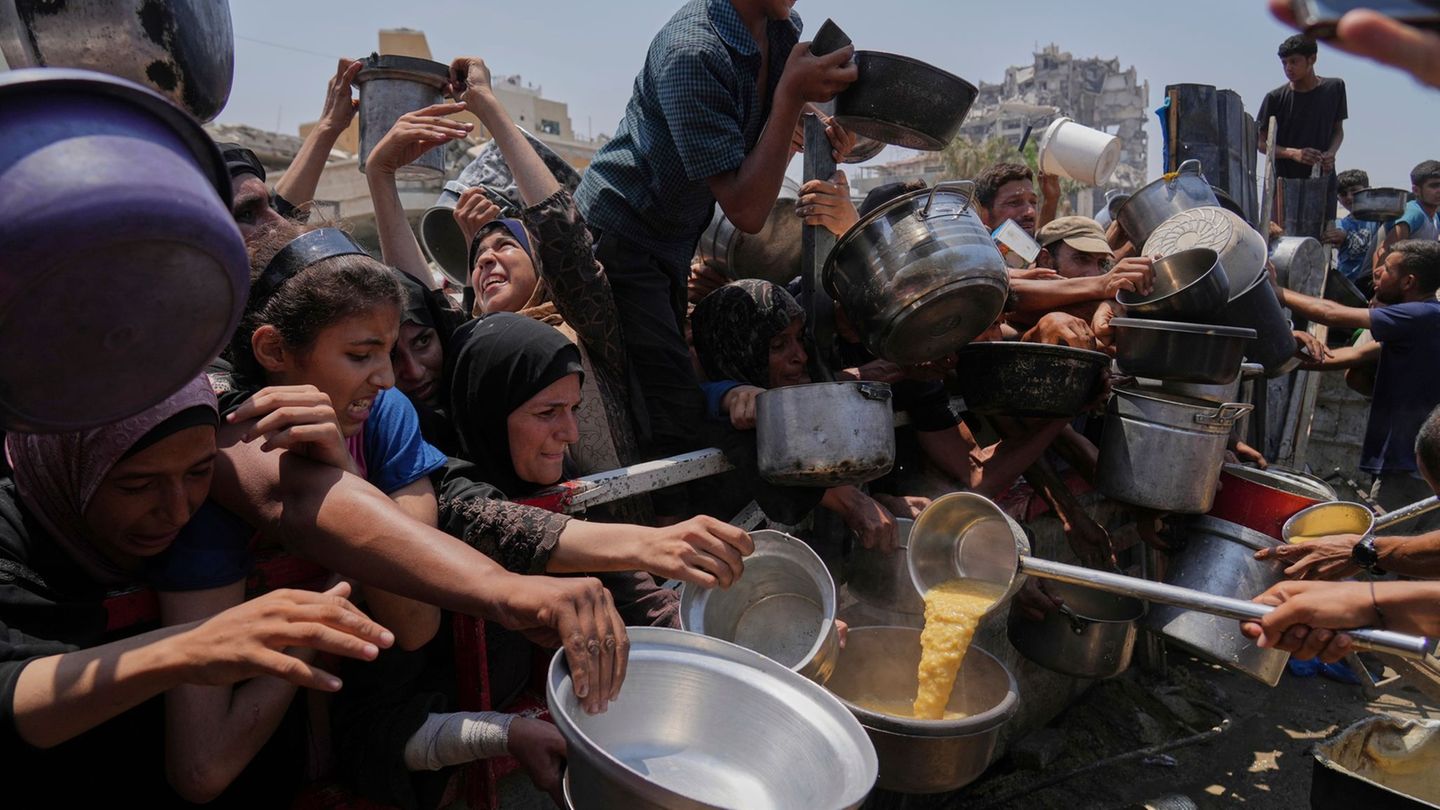On Monday, thousands of farmers are expected in Berlin for the climax of a week of action. The Chancellor defends the federal government’s compromise on subsidy cuts – and sees Germany as being put to the test.
With regard to the farmers’ protests, Federal Chancellor Olaf Scholz called for “moderation” and warned of a “toxic mixture”. The SPD politician said in a video message “Kanzler Kompakt” that was distributed on Saturday: “If protests that are legitimate in themselves turn over – and generally in anger or disregard for democratic processes and institutions, then we all lose. Only those who will benefit will then who despise our democracy.”
Calls for violence and personal threats have no place in democracy, said Scholz: “Gallows are not arguments. Political opponents are not ‘full-heads,'” said Scholz. “Especially in times as stressful and unsettling as today, it is important to maintain moderation and balance – that should be a concern for all Democrats.”
Large demonstration on Monday in Berlin
At the climax of the farmers’ action week, thousands of farmers are expected in Berlin on Monday for a large demonstration and rally. The farmers’ protests are directed against planned subsidy cuts by the federal government. Accordingly, the tax relief for agricultural diesel should be gradually abolished. The government wants to forgo the originally planned abolition of the vehicle tax exemption for agriculture. The German Farmers’ Association is calling for the cuts to be completely reversed.
The Bundestag still has to approve the 2024 federal budget and the planned cuts in agricultural diesel. On Monday, the chairmen of the traffic light factions SPD, Greens and FDP invited the leaders of the agricultural associations to a discussion.
Farmers President Joachim Rukwied told the German Press Agency: “We assume that they are aware of the explosiveness of the issue and that we will receive serious suggestions on it.” The conversation could initially only be about agricultural diesel. We are counting on the faction leaders to present a solution to this.
Chancellor defends compromise
With regard to the partial reversal of cuts, Scholz said that the government had taken the farmers’ arguments “to heart”. “It’s also about what else we can do to ensure that agriculture has a good future. We talk about that too. We’re also looking for solutions together. It’s also about fair prices, the power of the food trade, land speculation, etc about the consequences of climate change,” said the Chancellor.
He added: “If every subsidy remains in place forever, if we all insist on our position 100 percent, if we do everything the way we always do – then we won’t make any progress.”
The Chancellor continued: “Are all the current protests really just about agricultural diesel or the reduction of subsidies? I think crises and conflicts cause uncertainty overall. Many people are worried about: What will come next – what will happen the future for me? All of this ensures that some people express this out loud.”
Dispute is part of a democracy, said Scholz – but so is compromise. Germany is facing a “test”. Anger is deliberately fueled. “With gigantic reach, extremists use social media to contempt every compromise and poison every democratic debate. This is a toxic mixture that has to worry us and that also concerns me very much.”
He is grateful to Rukwied for clearly distancing himself “from extremists and some free riders who call for an ‘uprising’ and talk about ‘overthrowing the system’. That’s not just nonsense. That’s dangerous.”
Steinmeier calls on the federal government to talk to farmers
“In the current situation, I think it is urgently necessary for personal discussions to take place,” said Federal President Frank-Walter Steinmeier to the “Süddeutsche Zeitung”. Protests are legitimate. “But speechlessness between the federal government and the farmers harms everyone involved.”
Steinmeier advised politicians to leave the capital more often and go out into the country, as he does when he repeatedly moves his official residence to smaller cities for a few days. He wants to take away the feeling from people there that no one is interested in them. “Sometimes it helps to go and say, we want to hear you. In this respect, I actually think more presence in rural areas is urgently needed.”
Lindner points to high subsidies for agriculture
Federal Finance Minister Christian Lindner (FDP) told the “Neue Osnabrücker Zeitung” that the agricultural sector receives subsidies of a good nine billion euros annually from Brussels and Berlin. “Less than three hundred million will now be lost in 2025. So we’re talking about around three percent.” Parliament has the final say on the budget. “But everyone will have to do their part to normalize state finances.” Reducing subsidies would not close budget holes, but would finance new relief – namely the reduction in electricity tax for the manufacturing sector.
Source: Stern




